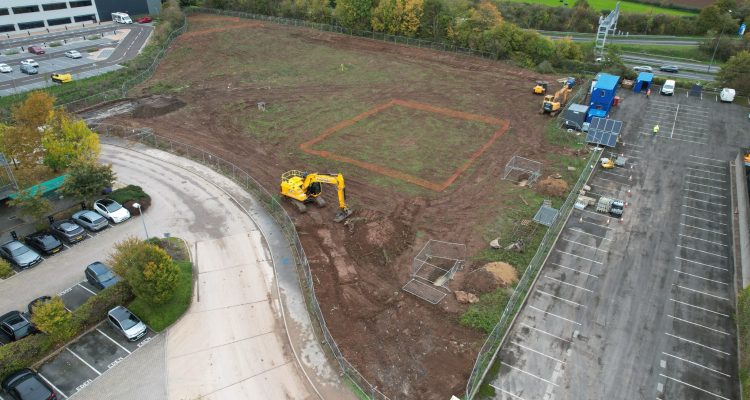ReFuels N.V., one of Europe’s leading suppliers of renewable biomethane (Bio-CNG) for decarbonisation of heavy goods vehicles (HGVs), has commenced construction of a public access refuelling station at Magor, South Wales.
The new station, owned and operated by CNG Fuels, is strategically located near the M4 motorway, providing direct access to key routes for efficient east–west freight between London, South Wales and the Midlands. The site is close to two international airports, the Port of Newport and home to distribution bases for major operators, including Tesco and AB InBev.
Today, 2,100 HGVs refuel daily at CNG Fuels’ 16 stations. With a fast-growing order book and rapid uptake of the new, larger 6×2 vehicles, Bio-CNG is now being mass-adopted. Renewable biomethane, sourced from food waste and manure, delivers emissions reductions of 90% compared to diesel and ~25% lower fuel cost than diesel and ~40% vs. HVO.
“CNG Fuels will provide biomethane to trucks travelling the M4 corridor, one of the UK’s most important freight routes, at Magor and from a planned site in Swindon. The new stations are part of the plan to expand our clean fuel infrastructure network, doubling the UK-wide dispensing capacity by the end of 2028 to meet increasing demand. This is driven by more fleets switching to 100% renewable and sustainable biomethane to reduce carbon emissions, accelerated by the rapid adoption of the new and larger 6×2 gas-powered trucks opening a much larger market segment,” said Philip Fjeld, CEO and co-founder of ReFuels.
The Magor station will have the capacity to refuel 12 trucks simultaneously when at full utilisation. This enables refuelling of more than 800 trucks per day and the dispensing of more than 30 million kilograms (kg) of Bio-CNG annually.
The current CNG Fuels network in the UK can refuel more than 11,500 HGVs daily. This equals an annual dispensing capacity of more than 340 million kg of biomethane and potential savings of more than 1 million tonnes of CO2 emissions per year compared to diesel. The plan is to double the refuelling capacity to 20,000 HGVs per day and more than 780 million kg of biomethane annually by the end of 2028.







